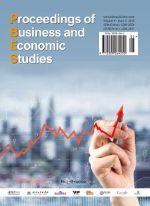Abstract
This paper examines the classic Chinese novel Journey to the West through the lens of rational choice theory, with a particular focus on the logic of cultivation and behavioral decision-making. By incorporating the notion of “inner cultivation” (xin xing xiulian) into the analytical framework, we introduce the concept of the “cultivating economic agent,” aiming to explore how rationality is generated, evolved, and transcended throughout the spiritual journey. The study argues that, in the context of Eastern culture, rationality is not merely an innate or static faculty but one that can be cultivated and transformed. Through textual analysis of the behavioral trajectories of Sun Wukong, Zhu Bajie, and Tang Sanzang, we uncover a structured behavioral logic of “goal orientation–institutional discipline–purification of the mind.” The findings suggest that although cultivation behaviors are not utilitarian decisions per se, they exhibit rational characteristics such as goal stability, autonomous will, and embedded incentives.
References
Becker GS, 1976, The Economic Approach to Human Behavior, University of Chicago Press.
Simon HA, 1955, A Behavioral Model of Rational Choice. The Quarterly Journal of Economics, 1955: 99–118.
Hare PG, 2001, Institutional Change and Economic Performance in the Transition Economies. Economic Survey of Europe, 2001: 77–92.
Williamson OE, 2007, The Economic Institutions of Capitalism. Firms, Markets, Relational Contracting, Gabler.
Laibson D, 1997, Golden Eggs and Hyperbolic Discounting. The Quarterly Journal of Economics, 112(2): 443–478.
O’Donoghue T, Rabin M, 1999, Doing It Now or Later. American Economic Review, 89(1): 103–124.
Iannaccone LR, 1998, Introduction to the Economics of Religion. Journal of Economic Literature, 36(3): 1465–1495.
Wu C, 1990, Journey to the West, People’s Literature Publishing House, Beijing.
